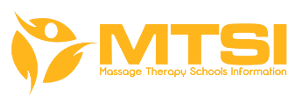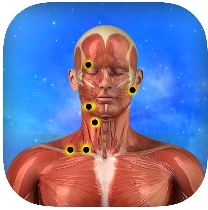
I am a massage therapist for my own company, incorporated in 1996. I work both from an office in my home in Newport Maine, and in a wellness center that I own in Bangor Maine, which also houses 7-8 other massage therapists (and includes many other wellness professionals such as PT, naturopathy, acupuncture, yoga, etc).
At the peak of my practice I saw 8-10 patients a day five to six days a week; as the business in the wellness center grew, and as I added becoming a yoga instructor to my job duties, I currently maintain a practice of 5-7 patients per day for four days and one day of yoga, with the “business” portion of work filling in any down time.
My massage practice is one of heart-based hands on techniques that I have learned through the years. My goal with each patient is to use the techniques they need each time they come in…rather than using the term “deep” tissue, I like the term “appropriate palpation” as a descriptor of my work.
I have trained extensively with myofascial specialists, as well as active-isolated stretching teachings. I also have established a small learning center for massage therapists. I developed a 600-hour course and also an apprenticeship program for aspiring therapists.
The apprenticeship (“fast-track”) is a short course designed for health care professionals who want to add massage therapy to their practice. I teach the hands on, functional anatomy, ethics, body mechanics, anything that would be particular to a massage therapist, and they then take the MBlex national examination.
2. Tell us why you chose to go into massage and at what point in your life did you decide to do so? What were you doing at the time? Where did you first hear about the massage career? What factors influenced your decision? What were you looking to get out of this decision?
I went into massage after a back injury which was slow healing until I found a massage therapist. I was 30 years old and in incredible pain which the therapist eased from the first treatment.
At the time I was an office nurse for a small family practice office. One of our patients knew of my back pain and told me that I needed to see “Ily”.
I had never heard of massage therapy at that point in my life. From my first session I knew that I wanted to learn how to help people in this way.
3. What were some of your questions and concerns before further pursuing your massage therapy goals? Talk about concerns with school and the profession itself.
I had no questions or concerns about pursuing massage therapy as a career. As soon as I had a massage, I felt like it was the career I had been searching for. I have never felt like it is “work” and I continue to feel that way in my 20th year as a therapist.
When I became a massage therapist, my state did not have licensing and, therefore, no requirements for education before setting up an office. I chose to take a distance learning option from The Myotherapy Institute in Utah.
They offered home study with a local trainer for our hand’s on study, testing taken with a proctor. I then took the national certification examination. My concerns with massage therapy schools in general is that they sometimes teach the cookie cutter approach rather than encouraging a listening practice that would make each massage unique.
The attrition rate for massage therapists is fairly high in my experience. Those with ethical issues, unable to work from their heart and their skill set, those that are not willing to work hard, quickly leave this line of work.
4. What is your specialty and what are the top three contributing factors to your success today?
My specialty is my listening skill. I listen with my hands, my head and my heart. I believe my practice is successful because I work hard, I advocate for my patients with their other healthcare providers, and I provide excellent soft tissue relief.
5. What do you like about your specialty? What do you like about what you do in general as a career? Why?
In general I love helping people and learning about them. Every patient is an education each time they come in.
6. What do you not like about what you do? Why?
I continue to love my “job” even after 20 years and it is a joy to go to work each day.
7. If there were three things you could change about your work or the industry as a whole what would they be? Why would you change them? What would you change them to?
I would caution the industry about the healthcare insurance realm. While it is very important to provide care to everyone we can, understanding that many people pay enough for their health insurance that they cannot afford out of pocket CAM, it is also important to not let ourselves be tied into a system that mandates how we approach each patient.
I would encourage massage therapists to think outside of the box to find ways to see people who might not be able to afford our hourly rate. I offer a sliding scale fee and continue to search for other options in which to see patients who can’t afford the care that they need.
8. How long do you plan to practice and what do you plan to do after?
I cannot foresee a time when I am not seeing patients.
9. Do you currently have another job or business whether full time or part time? Tell us a bit more about it and how you are able to juggle that with your massage career?
I have also run a successful wellness center for the past 10 years and incorporated yoga teaching into my work-life to give me options for less physically stressful work as I age.
10. What are some mistakes you made in your career pursuit that you’d like to warn other students about so they can learn from your experience and avoid it?
I personally had a hard time having employees. I have found it much more rewarding for both parties and their patients when the therapist doesn’t feel constrained by “having a boss”.
I needed to learn that there is something about the employee/employer relationship, no matter how much the employer tries to give independence, that breeds an us versus them mentality.
11. What would you advice someone who is looking at massage therapy schools? What do you recommend they look for and how? How do you recommend they determine whether the school is the right one for them?
Look for a school that offers independent thinking in how you approach each patient. Word of mouth continues to be the best way of advertising in my opinion. Of course, looking on line for massage schools is the way to find the options in your area.
Potential students should interview with the teacher of the hands on portion in particular. They should be sure that they can maintain their home life while in school and not feel overwhelmed by too many hours too quickly, or too much curriculum that is not focused on the goal. They should feel that they can have a good working relationship with the hands-on instructor.
12. What do you recommend for someone who wants to go to massage school but cannot afford it? There are many states that allow for apprenticeship.
Small schools and apprenticeship educators will often offer interest free options for making monthly payments.
13. What are your three biggest points of advice for an aspiring massage therapist today? What should they do/not do? What should they think about and consider?
If it is in your heart to be a massage therapist, do not wait. The world needs you. There are not enough therapists out here that have the listening skills necessary to be a successful therapist. The most important job for any type of caregiver is to take care of yourself first.
Regular bodywork, attention to your physical strength and health, including your nutrition and a healthy mind, should be at the forefront of your life. A healthy practice will follow your lead.
14. Any open thoughts / comments – anything else that you’d like to share about yourself, the massage industry, profession, future, etc? If nothing, make one prediction for the future of massage?
I predict that massage therapy will become an integral part of healthcare in the near future. The question will be…can we as therapists maintain our independence and our good work from the demands and negotiations that happen when aligned with insurance companies?
15. What is your passion outside of massage? What are your hobbies and interests which you pursue when you are not working? Tell us why you enjoy what you enjoy.
I am a mother (of a massage therapist!) and grandmother to two sweet girls. I am a fitness “nut”, love riding my road bike, hiking, lifting weights. I love many types of music and attend as many small venue events as I can.
I also love travel and spend my vacations visiting new places, both US and abroad and love going OBP 🙂 Of course, wherever I travel, I receive a massage!
Debra Lynn Smith is a LMT and RYT. You can find her on her website here.








Leave a Reply